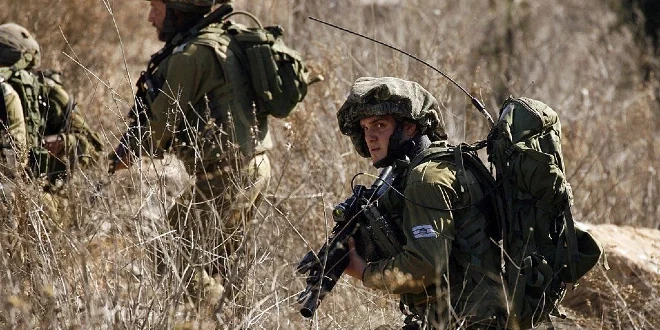Israeli officials have intensified their warnings against Hezbollah, indicating a dwindling patience as hostilities continue to escalate along Israel’s northern border.
Benny Gantz, a member of Israel’s War Cabinet, expressed on Wednesday that if international and Lebanese efforts don’t curb Hezbollah’s activities, Israel will take action. The Israeli army, under the leadership of Lt. Gen. Herzi Halevi, is maintaining high readiness and has prepared strategies for potentially opening a second front in the north.
This surge in conflict traces back to Hezbollah’s rocket fire that commenced shortly after Israel initiated a war on Gaza following the October 7 cross-border attack by Hamas.
The simultaneous conflicts, though less intense than the Gaza battle, have caused destruction, displacement, and casualties on both sides, heightening concerns about a regional war.
The confrontations involve Hezbollah attacking Israeli posts and villages along the border, launching rockets and drones at Israeli targets. In response, Israeli forces have been striking Lebanese border areas. These clashes, occurring almost daily, have been brief but intense.
More than 1,700 rockets have been fired from Lebanon towards Israel, resulting in the deaths of 15 Israelis, including nine soldiers, and injuring over 150 people. Israel has evacuated roughly 60,000 individuals from over 40 northern communities, including Kiryat Shemona.
In Lebanon, the fighting has displaced around 74,500 people, according to the International Organization for Migration. Nearly 160 people have died due to Israeli airstrikes and shelling in Lebanon, mainly Hezbollah fighters and allied groups, but also including at least 19 civilians, such as journalists and children.
Human rights groups and local officials have accused Israel of using munitions containing white phosphorus in Lebanese border areas, causing injuries and damaging farmland and woodlands.
The historical enmity between Israel and Hezbollah dates back to Israel’s occupation of parts of south Lebanon from 1982 to 2000. After a 2006 ambush by Hezbollah fighters and the subsequent month-long war, the border area remained relatively calm until recent skirmishes.
Israel believes Hezbollah possesses a substantial arsenal of rockets and missiles, capable of reaching nearly any part of Israel. Hezbollah asserts its attacks aim to alleviate pressure on Gaza, where Israel is conducting a comprehensive offensive against Hamas.
Iran’s support for Hamas and Hezbollah, along with backing groups in Yemen, Syria, and Iraq, has been evident in the ongoing conflict. These Iran-backed groups have launched attacks supporting Hamas, impacting trade and prompting a U.S.-led naval operation in the Red Sea.
The general’s killing in Damascus, attributed to Israel by Iranian state media, signals escalating tensions. As Hezbollah leader Sayyed Hassan Nasrallah navigates a precarious situation, Israel prepares for potential expansion of the conflict and seeks adherence to the 2006 U.N. ceasefire agreement. This agreement stipulates that Hezbollah should not have a military presence in the border region, a point contested by Lebanon due to alleged Israeli violations.


